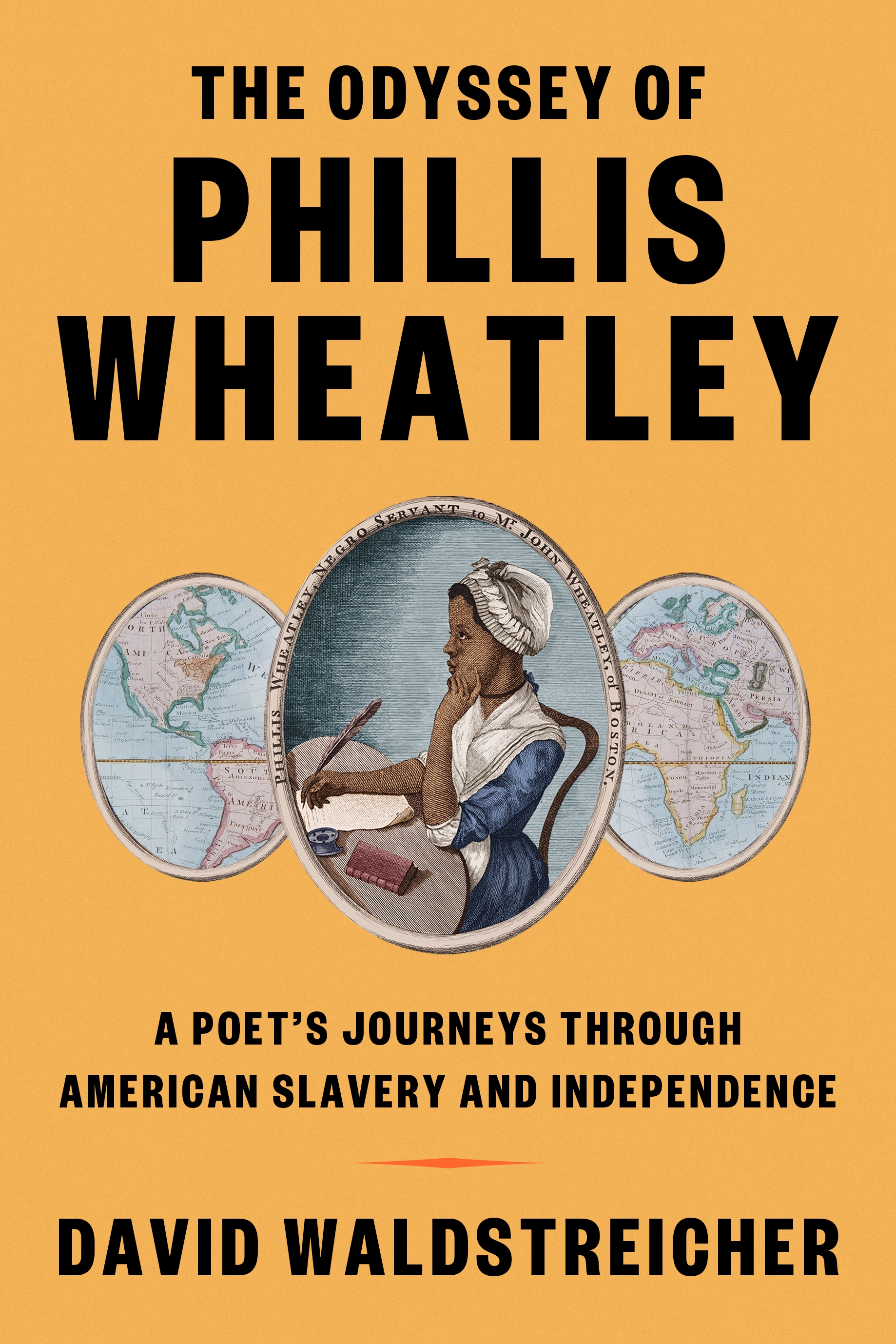The Odyssey of Phillis Wheatley: A Poet’s Journeys Through American Slavery & Independence

MHS Event
David Waldstreicher, CUNY, in conversation with Kellie Carter Jackson, Wellesley College
This is a hybrid event. FREE for MHS Members. $10 per person fee (in person). No charge for virtual attendees or Card to Culture participants (EBT, WIC, and ConnectorCare). The in-person reception starts at 5:30 and the program will begin at 6:00.
Admired by George Washington, ridiculed by Thomas Jefferson, published, and read far and wide, Phillis Wheatley led an extraordinary life. Seized in West Africa and forced into slavery as a child, she was sold to a merchant family in Boston, where she became a noted poet at a young age. Mastering the Bible, Latin translations, and literary works, she celebrated political events, praised warriors, and used her verse to variously lampoon, question, and assert the injustice of her enslaved condition. By doing so, she added her voice to a vibrant, multisided conversation about race, slavery, and discontent with British rule; before and after her emancipation, her verses shook up racial etiquette and used familiar forms to create bold new meanings. In this new biography, David Waldstreicher offers an account of Wheatley’s life and works, correcting myths, reconstructing intimate friendships, and deepening our understanding of her verse and the revolutionary era.
Hybrid Event
The in-person reception starts at 5:30 and the program will begin at 6:00.
Masks are optional for this event.
The virtual program begins at 6:00 PM and will be hosted on the video conference platform, Zoom. Registrants will receive a confirmation message with attendance information.
